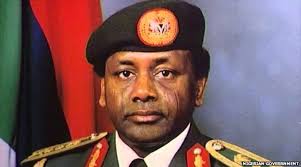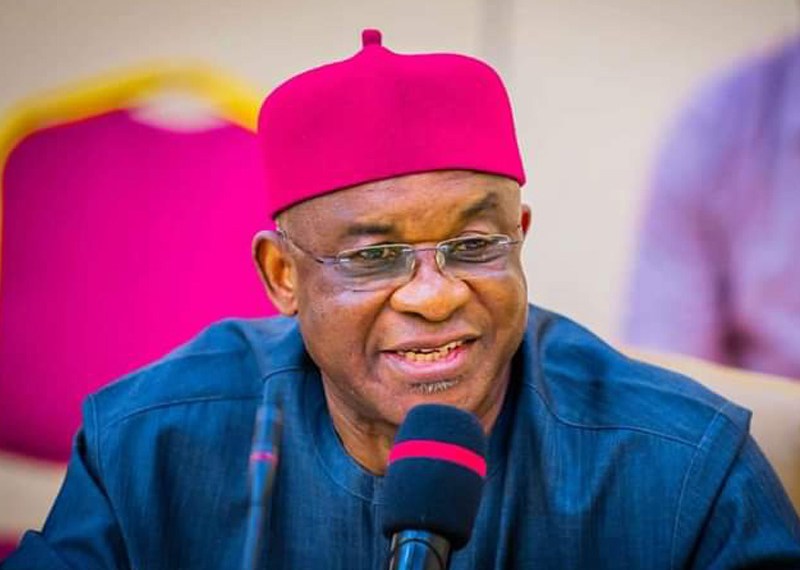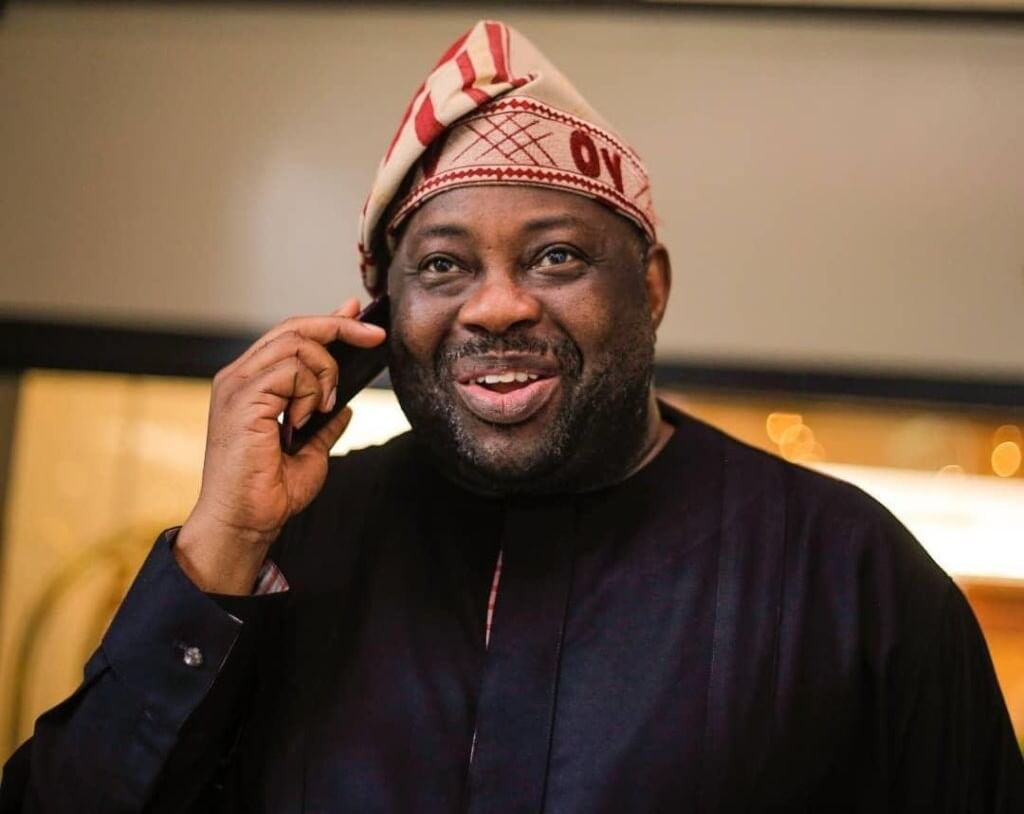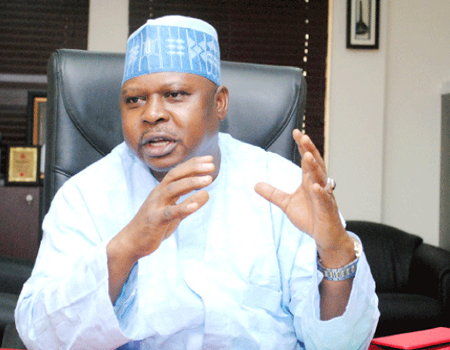By Adewale Adeoye
Former University don, Prof Adesegun Banjo, the June 12 hero who led the attempt to overthrow late General Sani Abacha through armed insurrection passed on quietly penultimate week. In this report, Adewale Adeoye reports on a life of war, intrigues and sacrifices that came to an abrupt end.
He died with a bundle of untold history
The reporter begins the story on a painful, personal note. I knew Prof Adesegun Banjo. I met him around 1996. He was in exile in Ghana. My first meeting with him was dramatic. The late Sanni Abacha’s government had placed a bounty on his head. He was wanted dead or alive. His offence was treason. Prof Adebanjo had truly planted to overthrow the government of Sani Abacha following the ancient axiom that disobedience to an illegitimate order is just. I can only remember a handful of Nigerians that made the sacrifices this Professor of Human Anatomy made to the campaign against totalitarian rule in Nigeria.
The crusade started in the United States, (US) where he had worked as a surgeon. He had saved some 4million dollars through dint of hard work, Spartan discipline, self-denial of the good things of life and support from his charming wife. He then went into the open market. He purchased 3000 rifles, several sub-machine guns, thousands of medical equipment and kits. He even bought machines that could make several bullets. He bought medical equipment for the soldiers he planned to recruit in case they sustained injuries. How successfully beat the security operatives in Europe and America where he may have sourced the weapons.
His calculation followed three years of planning and several reconnaissance home visits. He took his time to study the barracks and the locations of the sentry. At Dodan Barracks, Ikeja and Ojo Cantonments, he took special interests with the hope of seizing them and converting them to his command posts.
He had a near perfect plan. He would bring in the weapons through the sea and land, launch a blitzkrieg of military assaults on important military installations. He would then launch a grand attack beginning from a rural community. From his calculation, he needed few men to start to be tripled after taking over the radio stations and making announcements for more to join the rebellion.
He kept his masterplan to his chest. With his calculation, he would take Lagos in days, followed by Ibadan and then he would move to Abuja. He already had field men in the Niger-Delta and in the Middle Belt and in some parts of the North. The effort was to be coordinated by him. Prof Banjo felt the military had to be overthrown by all means. He raised personal funds, recruited American soldiers including a Vietnamese Major who first trained him in Guerilla warfare. He wanted to build a small, swift and mobile army that would, within the shortest time storm Nigeria and destabilize the military high command.
He was a man of martial intrigues. In the days of his campaign, he suspected everything human; flying objects and creeping things. He was a man driven by suspicion and he had the habit of looking at his quest from one corner of his eyes as if suspecting you were holding a gun or that he had a pistol hidden under his trademark French suit. In Ghana, I had an extensive interview with him. A stocky and strongly built man by all standards, he wore the fierce mien of a revolutionary and the daring eyeballs of a prowling lion.
On that day I met him in Ghana at the Teachers House, through another radical journalist, Bunmi Aborisade, I had waited for about two hours before he stormed into the room, sweating. I thought he was coming from Kumasi, some hundreds of miles away. After the meeting, he left bile on my lips. Nothing can be as devastating as a journalist holding on to an exclusive story but with the instruction never to publish.
I was in The Guardian Newspaper. His fears were genuine. The newspaper had just been closed down and then reopened. He didn’t want the newspaper to be closed again, he explained, adding that more importantly, he was not in a safe place in Ghana. Later, I saw a tainted old Renault pulled up. The driver, a short man with a chest the size of a little bulldozer opened the door for him. He jumped inside. I watched the red, tail light disappeared into the corner of Accra street, far away from the balcony where I stood in awe. It took about 10 years later for me to know that he actually came to meet me from the room next to where I had met him.
Prof Banjo endured an extraordinary punishment for his rebellion against injustice. The weapons he procured were, by accident, sighted by Beninoise Gendarmes. Initially, the security operatives praised him, promising that since the weapons were meant to fight Abacha, they would assist him. At Benin Republic, he bribed the officials to the tune of 1.5million. He was almost entering Nigeria when he got a call from Copenhagen asking him to pay some 5000 dollars. He left to raise the money but felt he should offload the goods first. It was in the process than one of the Benin Gendarmes noticed the protruding butt of a gun in the container. He raised the alarm. Banjo was picked up. At first, the officials said they would allow him to go. But information had reached Abacha.
So, the second day, the country was flooded with Nigerian top military echelon including Col Frank Omenka of the Directorate of Military Intelligence, (DMI). Local authorities told him Abacha had passed on 100 million dollars to some Beninese officials. That was how he was detained at the Port Prison. He spent 10 days amidst diplomatic manoeuvres by Nigeria to repatriate their most priced fugitive. He planned to escape with a small knife with 26-hydra heads, cutting the protective fence.
But somehow, a spy was in the midst who hinted Abuja. Within the shortest time, top security officials later told Banjo that the sum of 100million dollars was dispatched to the Benin Republic to oil the hands of officials who had sold him. But it was not going to be easy for Abacha as foreign countries were already alerted many of who did not want him killed. Banjo was bundled into a toilet, his wife separated from him. He spent 10 days in the septic tank relying on the keyhole to sniff some fresh air. He made an attempt to escape, through a jackknife he had kept in his kitty. An alarm was raised, he retreated. Thus began his ordeal. He was taken to court in the Benin Republic. He relied on the ECOWAS treaty that goods in transit must not be questioned. The judge being a Yoruba was moved by his story, especially the courage displayed by his Igbo wife who refused Amnesty offered by President Nicephore Soglo, so that she could go, leaving her husband. The Judge set them free. This was after more than one year in very harsh and dehumanizing cells. But as he walked away from the Court, a call came in from the Beninese President believed to have acted on Abacha’s prompting that he should be detained again. He and his wife were locked in a primitive toilet with constant heaps of faeces. His wife developed pterygoid plexus, an infection of the base of the brain. They spent 14 months in detention before a compassionate female judge freed them again. The two escaped to Ghana through the assistance of a Nigerian journalist, Mr Moshood Fayemiwo who paid dearly for this. Abacha’s agents later kidnapped Fayemiwo who was brought to Nigeria and detained at the office of Directorate of Military Intelligence, (DMI).
When he died peacefully penultimate Wednesday, after protracted struggle with cancer, a bundle of history untold, died with him. The family is yet to make official announcements. Many of his friends and colleagues are yet to be informed. He lay in the mortuary as at press time, but family sources say he will be buried in May this year.
“I had 120 young men stationed at the Nigerian Ports Authority. They were waiting for my weapons. My plan was that if the customs found the weapons by chance, the battle would start right at the seaport”, he had told me in Ghana before he left the country after Abacha had sent a chartered aircraft to plead with him, pick him up and pay him off. When that effort failed, the government of Abacha sent two Nigerian journalists accompanied by one of Abacha’s own son. The assignment was to poison him. They feigned media practitioners who had come to interview him. Prof Banjo awed them when he stormed the venue of the interview with some 15 armed men in Accra. “I was hinted of their plans. So, I prepared for them. Throughout the interview, they were shaking like a lily,” he had told me. He said after his escape from Ghana, the Nigerian military had rounded up many of his local supporters-but some were innocent-and dumped them in the high sea, stones on their necks, no fewer than 100 of them.
One of the emissaries sent by Abacha died in mysterious circumstances in Lagos a few years after Abacha himself had kicked the bucket. History may find it difficult to record another Nigerian academic who stood so fiercely for justice through armed struggle against the military like Banjo. After consistent attempts to kill him in Ghana he had escaped to Uganda. Luckily he knew President Yoweri Museveni. They had met at Makerere University years back. But he could not help him. This forced him to run to Zimbabwe. Abacha had also secured the services of mercenaries, mostly from Saudi Arabia charged to kill or kidnap and bring him to Nigeria. His network in the international intelligence community, mostly of Yoruba stock hinted him in advance.
Unfortunately, when he returned to Nigeria in 2001, life and people became unkind to him, except the love and affection of his immediate family. He tried, but never got a good job. The government and politicians ignored him and treated him like a leper. His efforts to sustain his cancer treatment through medications did not succeed because of funds. He needed only 5 million naira to treat his kind of blood cancer which had a cure, but he could not raise a penny. But one thing is certain, Banjo, who was the immediate junior brother of the late Col Victor Banjo of the Biafra fame, is now totally free from the affliction of a society he tried so much to salvage but that never gave him recognition, not even a wreath after his last breath. His efforts, though aborted, also remain the most striking high-level radical collaborative political efforts between two arch rivals, Yoruba and the Igbo nation.
Before he died, he told me one of his regrets was that the remains of his late brother, Col Banjo lay in an unknown shallow grave, yet to be honoured, even though his covert investigations had revealed the spot is somewhere in Enugu, known only to the late Dim Odumegwu Ojukwu and his few lieutenants.

 Boss Of The Week5 days ago
Boss Of The Week5 days ago
 Opinion5 days ago
Opinion5 days ago
 Middle East5 days ago
Middle East5 days ago
 National5 days ago
National5 days ago
 News3 days ago
News3 days ago
 Middle East5 days ago
Middle East5 days ago
 Boss Picks5 days ago
Boss Picks5 days ago
 Headline5 days ago
Headline5 days ago














